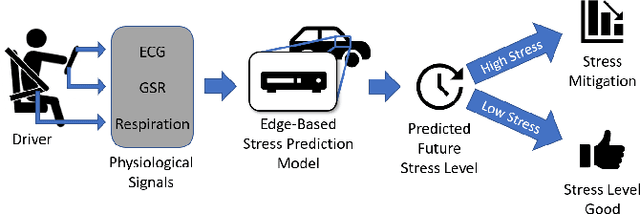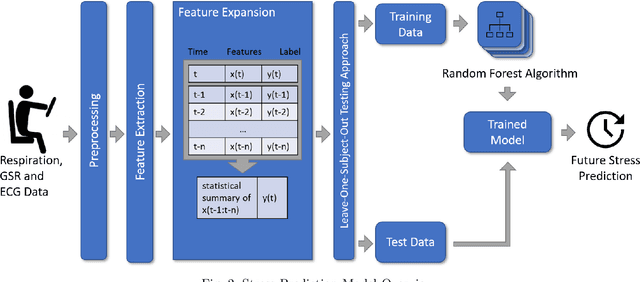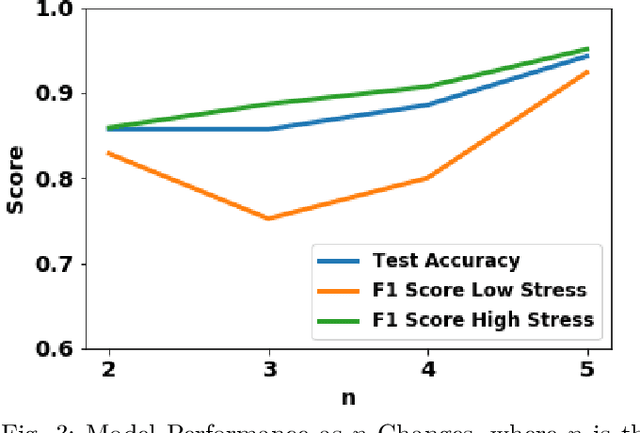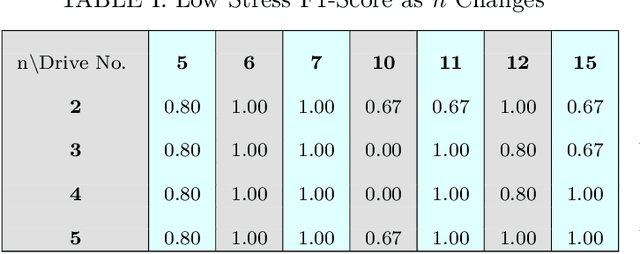Joseph Clark
Machine Learning Based Prediction of Future Stress Events in a Driving Scenario
Jun 08, 2021



Abstract:This paper presents a model for predicting a driver's stress level up to one minute in advance. Successfully predicting future stress would allow stress mitigation to begin before the subject becomes stressed, reducing or possibly avoiding the performance penalties of stress. The proposed model takes features extracted from Galvanic Skin Response (GSR) signals on the foot and hand and Respiration and Electrocardiogram (ECG) signals from the chest of the driver. The data used to train the model was retrieved from an existing database and then processed to create statistical and frequency features. A total of 42 features were extracted from the data and then expanded into a total of 252 features by grouping the data and taking six statistical measurements of each group for each feature. A Random Forest Classifier was trained and evaluated using a leave-one-subject-out testing approach. The model achieved 94% average accuracy on the test data. Results indicate that the model performs well and could be used as part of a vehicle stress prevention system.
 Add to Chrome
Add to Chrome Add to Firefox
Add to Firefox Add to Edge
Add to Edge